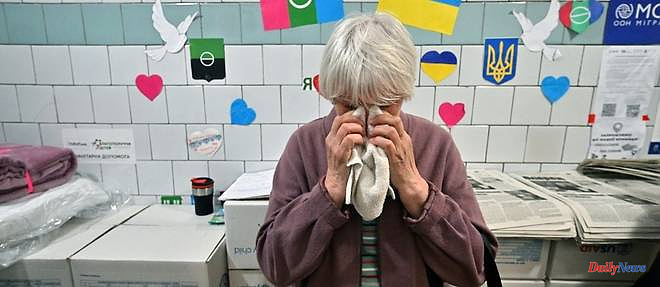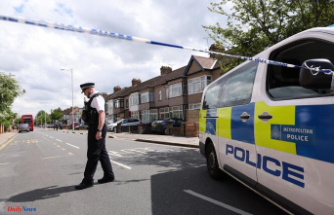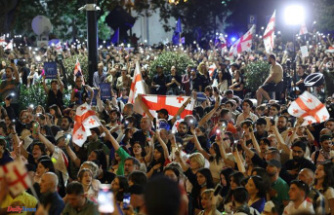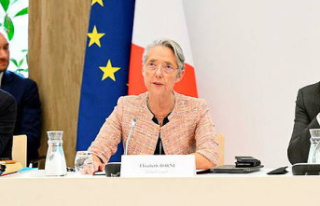“You got what you wanted!” cried Olga with angry tears after fleeing her hometown of Bakhmout in eastern Ukraine, which Moscow claimed was captured after devastating fighting.
The 33-year-old woman, who arrived in Kiev in October with her husband and two children, is speaking to those among the residents of Bakhmout who were "waiting" for the Russians to arrive, while the others fled.
Like other displaced Ukrainians, Olga goes to Kyiv to a special support center where she can see a doctor and get free clothes or bedding.
Bitter, she told AFP how she "found herself homeless when she had accommodation" in Bakhmout, an industrial city that has become the epicenter of fighting between Russian and Ukrainian forces since the summer.
Russia on Saturday claimed the capture of Bakhmut after the longest and deadliest battle of the war. Ukraine still claims to be fighting in a last pocket of resistance.
As this once quiet and green town is now devastated and emptied of its population, Bakhmout's displaced are closely following images on social media and news channels to try to find out what happened to their homes.
When the men of the Russian paramilitary group Wagner, on the front line in this battle, "arrived, we understood that it was over", says Olga.
"At first, some of our friends were still there. When they (the Russians) evacuated the last people who hadn't left in time, we realized that they were razing everything," she continues.
Vera Biryukova, a 74-year-old retired teacher, shows a flood of photos of a charred building with shattered windows -- her apartment is on the ground floor.
"There's fighting going on around the building right now. I see in the footage that in my building, the second and fifth entrances have caught fire, as well as the roof," she said.
"There is no place left to go back to, but I want to go home, even if there are only ruins left," she sighs. "We didn't think our city would become a fortress."
This gray-haired woman bursts into tears as she recounts how she left for Kyiv after sleeping for months in the basement, taking only a few clothes and leaving behind her precious family photos.
But she doesn't condemn Russia's actions: "What can I say? I want to go home. I'm not a politician."
Another support center visitor, Iryna Tkatchenko, who worked as a saleswoman for 38 years, is very optimistic about the future of Bakhmout and Ukraine.
"The city no longer exists, but we believe that they (the Ukrainians) will take it back, that they will drive them out," insists the 58-year-old woman.
However, she admits that "a lot of people think the opposite" among the inhabitants of Bakhmout. "It's a great shame that they support" Russia, she says.
She explains that Russian troops evacuated residents of the area, including her brother and sister-in-law, who had stayed behind to work in a children's hospital.
"My younger brother and his wife have just been taken to the other side", in Russia, she reveals.
Iryna Tkatchenko is from Russia herself and still has family there.
"My relatives are now writing to me saying: everything will be fine, we release you", she says, before adding: "I did not expect it to be like this, that 80% of Russians now think that we are enemies, that we are Nazis".
The Kremlin justified its invasion by a desire to "denazify" and "demilitarize" Ukraine while presenting its campaign as a fight against Western hegemony, a discourse that resonates with part of the population in the East.
According to the director of the support center for displaced people in Kyiv, Lyoudmila Bondareva, more than 6,500 inhabitants of Bakhmout now live in Kyiv and its region, including 1,400 children.
Many of them are struggling to make ends meet, particularly because of rental prices in the capital, but Lyoudmila also mentions a lack of food.
Iryna says she sleeps on a mattress on the floor in a studio shared with three other people. She has not received any food aid since September.
"It's hard, but what can we do? That's life," she says.
22/05/2023 20:30:09 - Kiev (Ukraine) (AFP) © 2023 AFP












